Mat’land universities make innovation breakthroughs
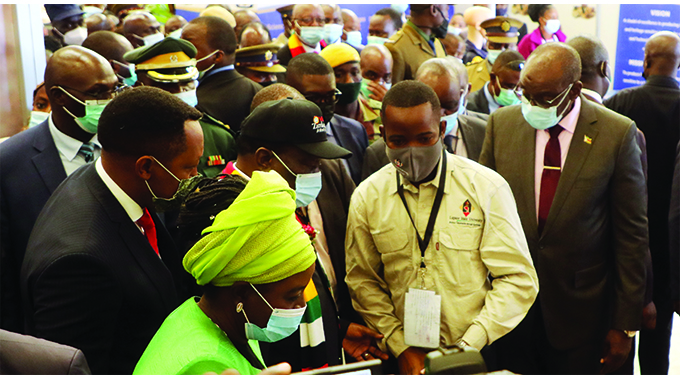
Prosper Ndlovu, Business Editor
STATE universities in Matabeleland region have come under spotlight for making strides towards developing innovative solutions that positively impact on their immediate communities and the economy at large.
Based in Bulawayo, the National University of Science and Technology (Nust) has over the years become a leading torch-bearer in coming up with industrial impact solutions through research and innovation.
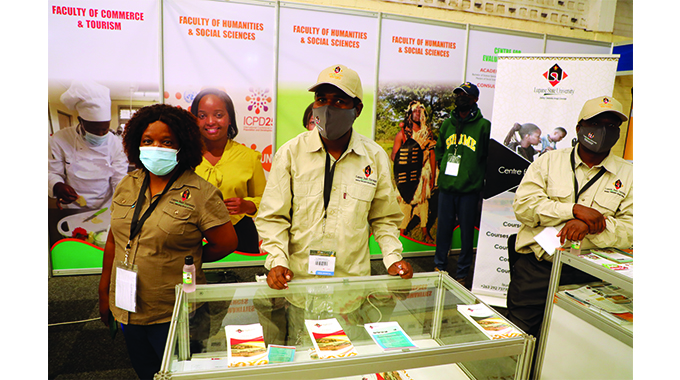
By working closely with farmers and agriculture-related entities mainly in Matabeleland North Province, Lupane State University, is also defining its niche with specialised innovative solutions targeting cropping under dry-land climatic conditions, as well as small stock production, among others.
On one hand the newly-established Gwanda State University (GSU) has since its operationalisation in 2016, shown increased focus towards mining engineering, specialised animal and veterinary sciences as well as irrigation development.
The innovative focus by institutions of higher learning is in line with the Government’s drive to transform the economy into an upper middle-income status by 2030.
This has seen the Treasury allocating $7,2 billion for innovation hubs and infrastructure development in local universities, in particular.
Nust is already working on producing Polymerase Chain Reaction (PCR) kits following the delivery of a US$86 000 reagents manufacturing machine recently while the Government is also financing projects at LSU and GSU so that they respond to challenges experienced by their communities.

The three universities exhibited their products and services during the recent Zimbabwe International Trade Fair (ZITF) in Bulawayo and had the opportunity to closely interact with President Mnangagwa during his tour of stands.
In separate interviews after engaging with the Head of State and Government at ZITF, the university officials expressed excitement that their innovation breakthroughs were being recognised at a higher level.
Nust director of communication and marketing, Mr Thabani Mpofu, said President Mnangagwa was mainly interested in finding out what innovative projects by students were being exhibited and the support they needed to develop these into full-scale businesses.
“The President was interested at what the Nust Innovation Hub offers and highlighted interest at the ‘Par-market Mobile Application’, which connects farmers, vendors and consumers,” said Mr Mpofu.
“This is a global application that can be accessed from as far as the United Kingdom and farmers can subscribe into it and sell their produce to anybody.
“The President said he expected Nust to assist students to start their own businesses and has pledged to provide more support for that.”
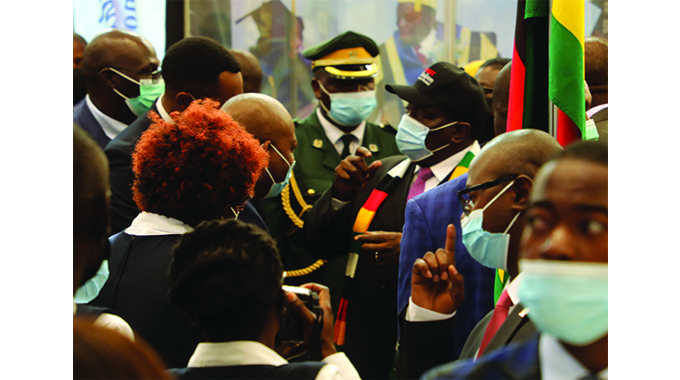
Mr Mpofu said as Nust, they were impressed by the fact that the President has acknowledged their efforts towards implementing Government’s ‘‘Education 5.0’’, a new economic transformative focus by institutions of higher learning, which responds to the demands of national development.
He said this thrust was critical as universities also have a mandate to contribute towards attainment of Vision 2030 by providing innovative solutions that transform people’s lives.
“Given the uptake of innovations by our students, we are confident that we will deliver our mandate as an innovation hub for incubating start-up businesses and we expect to see more,” said Mr Mpofu.
Lupane State University (LSU) spokesperson, Mr Zwelithini Dlamini, said the President was impressed by their agro-industrial value chain and beneficiation focus.
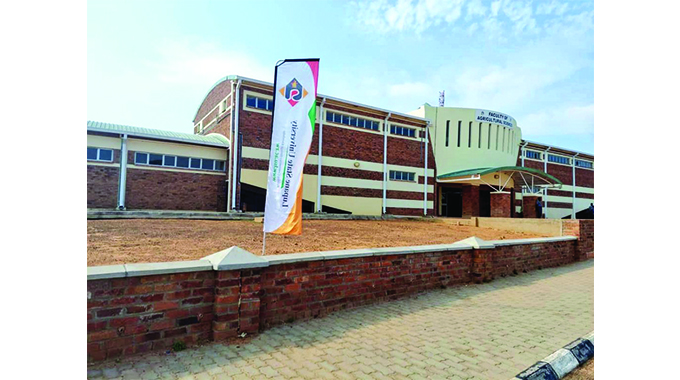
Lupane State University
“Upon visiting our stand, the President was excited about our dry-land farming approaches for small grains such as sorghum, which we are showcasing and we want to commercialise going forward,” he told Chronicle.
“We are also exhibiting technology that extracts syrups from sorghum and this can be used as a sweetener or bread spread and for making sweets.
“We are also working with farmers in the processing of chilli and some of the products are already being delivered in shops in Lupane. We are keen to upscale this venture.
“The other highlight is our thriving goat rearing project and the President was interested in this, especially the value addition component where goat skins are processed into leather products. We are partnering with Nust on this.”
Mr Dlamini said LSU was also engaged in skills empowerment programmes targeting smallholder farmers and appealed to the Government to assist the university to secure more land to expand its goat and small grains production.
Gwanda State University (GSU) public relations manager, Mr Walter Ndlovu, said although they were a young university, their vision was become a world class agro-innovation centre for research, value addition and industrialisation.
“When the President passed nearby and saw us, he remarked: ‘Oh! Gwanda’ and came closer as he was attracted by our agro-innovation focus, especially the aspects related to livestock. He stressed that we should establish an innovation hub like other universities,” said Mr Ndlovu.
“Our Agro-innovation and Industrialisation Programme revolves around a fully functional farm to support research, innovation and value addition activities.
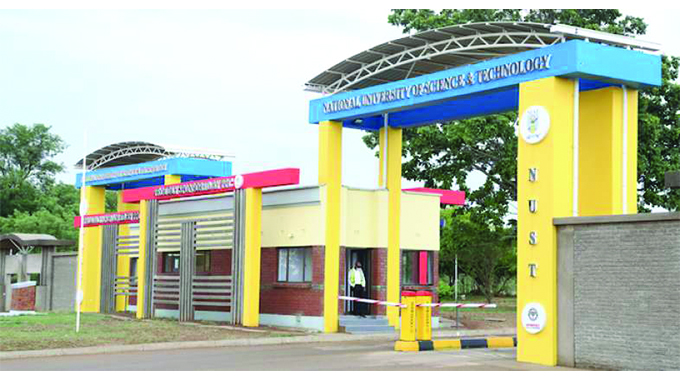
National University of Science and Technology
“It will contribute to poverty reduction, economic growth, greater resilience and social cohesion in Zimbabwe through enhanced productivity and commercialisation of agriculture to contribute to NDS1 and the transformation of Zimbabwe economy into upper middle-class by year 2030.”
Higher and Tertiary Education, Innovation, Science and Technology Development Minister, Professor Amon Murwira, has said that beyond infrastructure development, the ministry was championing the innovation agenda.
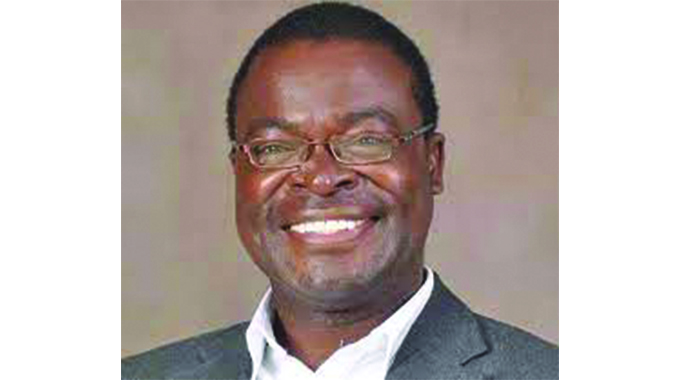
Higher and Tertiary Education, Innovation, Science and Technology Development Minister Professor Amon Murwira
“We are giving capacity to our innovation hubs in order to innovate more. We are now moving towards making our own reagents at Nust and we have already invested in that. Lupane State University (LSU) is a university that is designed to do technology on dry land agriculture. We are beginning to invest in its innovation and agro-innovation and industrial park,” said Prof Murwira in a recent interview.
“We have already started providing resources so that they can specialise in the research on dry land goats, dry land birds like chickens. They are already doing the road runner research.”


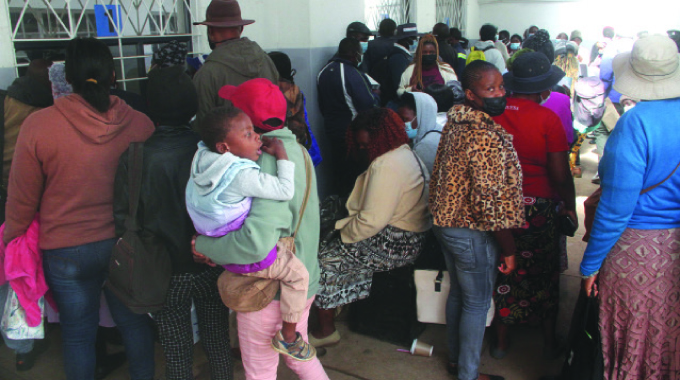







Comments